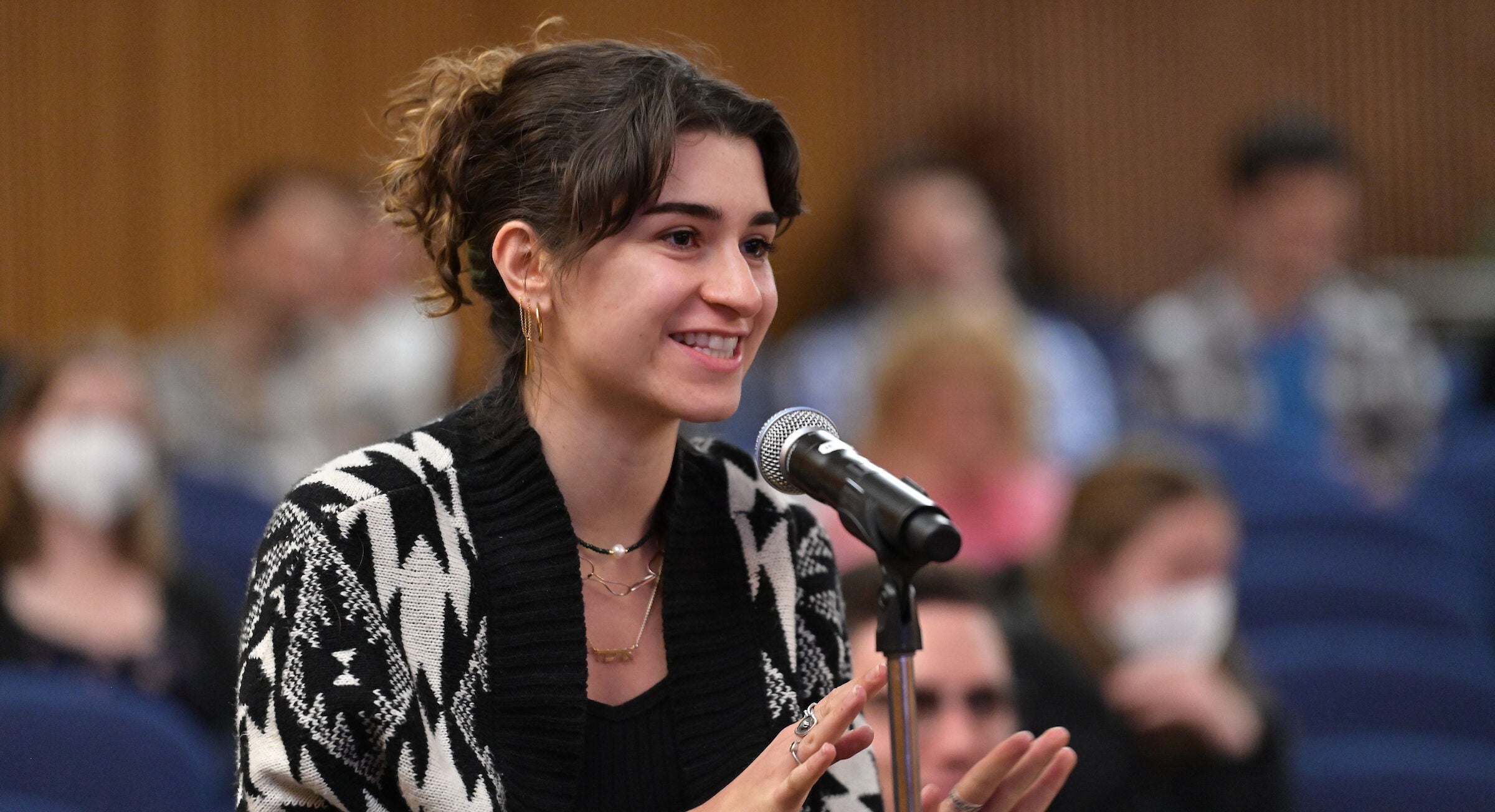Enroll now!
Ready to take the next step? First-year students must complete the BS-ES foundational coursework in the Fall.
Enroll now
Ready to learn more about the BS in Environment & Sustainability? Check out our FAQ! Don’t see your question here? Attend an info session or watch an info session recording, or email JESP@georgetown.edu.
Ready to take the next step? First-year students must complete the BS-ES foundational coursework in the Fall.
Enroll nowFor incoming Georgetown first years, you can start your journey by enrolling in foundational coursework. Want to explore the curriculum first? Start here or watch an info session.
For prospective Georgetown students, you can sign up here for more information on admissions, deadlines, and prospective student events, and apply to Georgetown here.
For current Georgetown students, email JESP@georgetown.edu to discuss pursuing the degree.
Visit our enrollment page for more information as well as our events page for upcoming information sessions.
The BS-ES program requires that these courses be completed in your first semester:
Learn more about requirements here.
Yes, several of the required BS-ES courses fulfill College of Arts & Sciences (CAS) core requirements:
Please review the requirements page for a complete list of courses and the CAS core requirements that they fulfill.
The university’s growing campus in the neighborhood of the Capitol, at the heart of Washington, DC, offers exceptional opportunities to work, learn, and serve in a city that shapes the world. Georgetown’s Capitol Campus recently expanded with the acquisition of 500 First Street—a building now home to select interdisciplinary centers from the law school, main campus, and medical center, as well as select undergraduate programs. Students in the BS-ES third and fourth years will call the Capitol Campus home.
Learn more about the Capitol Campus here.
What makes this degree different?
In addition to the distinct features laid our on our About page, the following points demonstrate that the BS-ES is distinguished from other programs because:
Considering how environment and sustainability touch on all aspects of life, graduates will be prepared to pursue a wide range of careers in the environmental and sustainability fields and beyond. The Professional Formation component of the degree will also help guide and prepare students as they begin to explore how their academic journeys can inform their particular career paths. Potential career paths include working in environmental consulting, government agencies, non-profit organizations, or the private sector. Graduates may also choose to pursue further education in related fields such as law, public policy, or environmental science.
Yes, students in the program have opportunities to study abroad, and are strongly encouraged to do so through multiple pathways in order to participate in external environmental fieldwork. The program offers various international study and research opportunities, as well as internships and field experiences in the Washington, DC area.
Our students are encouraged to undertake research projects that address pressing environmental and sustainability challenges facing society. All students will complete a research capstone project or an equivalent impact project in the arts, education, activism, or community engagement. Students also have the opportunity to work with faculty mentors on individual or group research projects, and may also participate in research projects with other institutions or organizations.
There are no specific prerequisites for the degree as students are encouraged to join in their first year, but interested students are encouraged to build a strong academic background in science, social science, or humanities. Interested students should also demonstrate a strong interest in environmental and sustainability issues
The program is committed to addressing issues of environmental justice and social equity in its curriculum and research. Students will be exposed to topics such as the disproportionate impact of environmental degradation on marginalized communities and the role of public policy in promoting social equity.
Yes, students will have opportunities to engage with environmental advocacy or policy work during the program. Students can participate in internships with environmental organizations, government agencies, or businesses, and may also have the opportunity to engage in advocacy or policy work through coursework or research projects.
The program addresses issues related to climate change and global sustainability through its curriculum and research. Students are exposed to topics such as renewable energy, climate science, climate policy, and sustainable development, and are encouraged to undertake research projects related to these issues. The program also collaborates with other organizations and initiatives focused on climate change and global sustainability, such as the Georgetown Climate Center.
The BS in Environment & Sustainability degree is the result of a comprehensive continuous series of discussions, classes, and research first initiated in Spring 2021. From the beginning, the goal was to create a complete liberal arts degree in environment and sustainability that was innovative and forward-facing, as well as rooted in Ignatian principles of education and environmental consciousness.
The degree was developed along two intersecting tracks. One track involved faculty and educational design staff working together on interdisciplinary curriculum development and program building. This included faculty listening and visioning sessions, a core design team, and wider faculty input on iterations of the degree proposal.
A second closely aligned track involved 30 undergraduate students in a year-long credit-bearing design course (AY 2021-22) imagining and developing key dimensions of the degree. The course held a particular focus on the student experience, the connections between Hilltop and Capitol Campus locations, and the infusion of wellbeing, equity, and high-impact learning practices. Several undergraduates continued to work on building out dimensions of the degree, particularly those focused on the student experience.